From O Brother, Where Art Thou? (2000) to No Country for Old Men (2007), these are the best Coen Brothers’ movies ranked.
The Coen Brothers – Joel Coen and Ethan Coen – have made films across genres. From comedies, Westerns, thrillers, and inexplicable mysteries, they’ve subverted genre trappings and incorporated into stories their unique worldview. Coen Brothers’ filmography often exhibit their love for Greek tragedy, hard-boiled novels, and existentialism. The brothers’ profound investigation of the human condition reaches its zenith in works like No Country for Old Men, The Big Lebowski, and Fargo.
Born to university professors, the brothers’ early interest in filmmaking was nurtured by a Super-8 camera. While Joel Coen graduated from New York University Film School, Ethan studied philosophy. Joel has worked as an assistant editor in a few low-budget films before joining his brother to write scripts and embark on independent projects. The 1984 neo-noir Blood Simple which they co-wrote, co-directed, and financed became a great critical success.
Over the years, Joel Coen and Ethan Coen have made 18 idiosyncratic works (not including the Joel Coen solo directorial effort The Tragedy of MacBeth), with complete creative control over their projects. Their films have gained great success in almost all the European festival circuits. Furthermore, they’ve each won four Academy Awards among the 14 nominations.
Of course, choosing the best from a singular and captivating body of work is a hard task. Yet here’s my attempt to count down the best Coen Brothers movies, for whatever it’s worth!
Best Coen Brothers’ Movies, Ranked
12. O Brother, Where Art Thou? (2000)
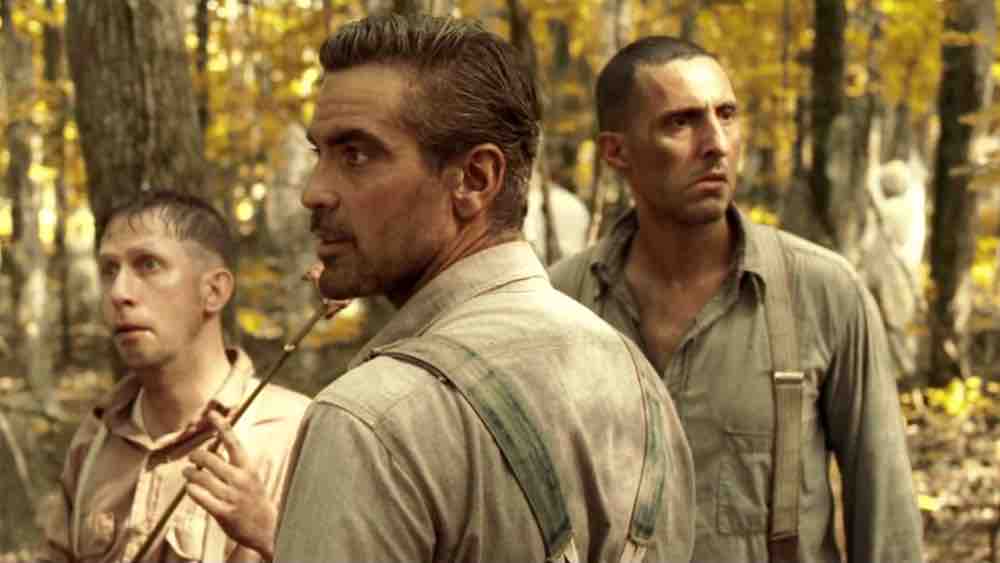
O Brother, Where Art Thou? is one of the Coen brothers’ entertaining light-hearted films, which is loosely based on Homer’s The Odyssey. It also reminds us of Preston Sturges’ classic Hollywood drama Sullivan’s Travels (1942). Set during the 1930s Great Depression era in Mississippi, the narrative follows three unlucky chain gang convicts. Ulysses Everett McGill (George Clooney), Pete (John Turturro), and Delmar (Tim Blake Nelson) escape while being chained together. They have several strange encounters in the American South, ranging from a young black musician to an excited bank robber.
One of the most enjoyable portions of the narrative includes the three comically disrupting a Ku Klux Klan rally. The film isn’t as complex or carries great thematic weight as the Coen brothers’ best works like No Country for Old Men or Big Lebowski. Yet this is a visually pleasing exploration of the Thirties Deep South, which is further strengthened by George Clooney’s old-school Hollywood charm. The film was nominated for Best Adapted Screenplay at the Oscars that year.
Where to Watch: Apple TV+
11. Blood Simple (1984)

Coen brothers’ debut feature film Blood Simple is a neo noir and a love story. Joel and Ethan Coen also edited and produced the film. It also marks the first of the Coens’ many artistic collaborations with Frances McDormand (she married Joel Coen the same year). Blood Simple is set during one sweltering Texan summer and tells the tale of an angry and jealous bar owner, Marty (Dan Hedaya). His wife, Abby (McDormand), is having an affair with a man named Ray.
When Marty finds out about his wife’s affair, he hires an unscrupulous PI, Loren Visser (Emmet Walsh), to kill Abby and her lover. But the simple hit job turns messy and brutal. Blood Simple is a captivating self-assured debut for the Coens. The gruesome hard-boiled story largely works due to the tense, menacing atmosphere Joel and Ethan Coen maintain throughout. Even in their first film, the Coens come up with intriguing visual experiments.
Where to Watch: HBO Max, Apple TV+
10. Burn After Reading (2008)
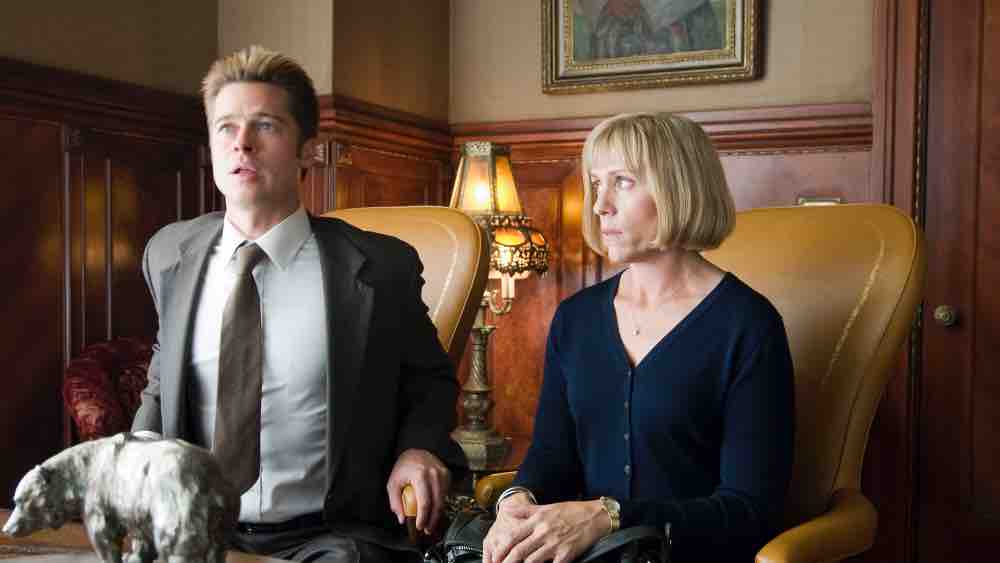
The Coen Brothers have always been unpredictable when it comes to their choice of subjects. Burn After Readingparticularly baffled critics and viewers alike since it was made right after their financially successful and Oscar-winning feature No Country for Old Men. Burn After Reading is an unrestrained and absurdist hyper-link comedy. The film teases us with espionage themes, but gradually subverts those tropes.
The film centers around a group of impulsive people whose stupid decisions leave a trail of bloodshed. The marvelous ensemble cast features George Clooney, Brad Pitt, Tilda Swinton, Frances McDormand, J.K. Simmons, and John Malkovich. But the scene-stealer was Brad Pitt whose character sets off the unsolvable chaos.
Perhaps, Burn After Reading is one of Coen Brothers’ most nihilistic works which explores the unpleasant aspects of humanity, especially greed. Joel and Ethan Coen have flirted with black comedy in films like The Big Lebowski and Fargo. While they don’t reach the mastery exhibited in those films, Burn After Reading is their most robust political work. It is unsettlingly relatable, particularly in this era of wide-spread paranoia and surveillance.
Where to watch: HBO Max, Prime Video
9. Miller’s Crossing (1990)
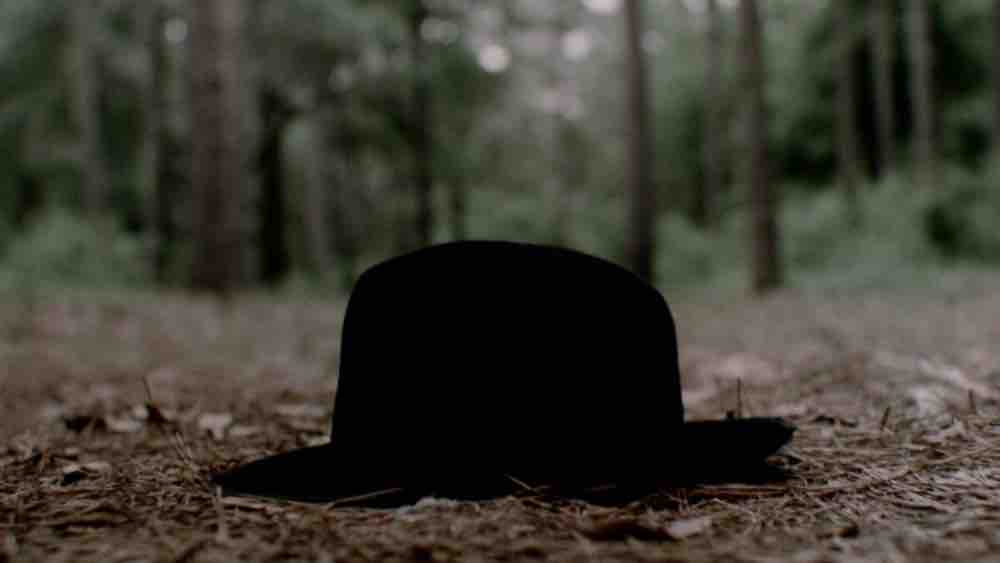
Miller’s Crossing is a brilliantly stylized neo-noir thriller that’s set during the Prohibition era. The movie is essentially about two rival gangs who are on the verge of war. And our protagonist tries to play both of them into destroying each other. One of Coen Brothers’ chief inspirations for the film apart from 1930s Hollywood crime genre films was Jean-Pierre Melville’s gangster classics. Hence the Coens’ focus more on the trajectory of carefully crafted characters than on the plot. Moreover, the cast which includes Finney and Gabriel Bryne wonderfully supports the film.
What perfectly works here is the Coens’ ability to weave the complex and idiosyncratic nature of each character into the taut narrative proceedings. The suspense never ceases as the true intentions of the characters are kept ambiguous. No one is what they seem to be. And there are some strange twists and betrayals. Films like Bugsy and Dick Tracy made around the same time found it hard to balance between its archetypal characters and a thrilling narrative. The Coens’ balanced everything very well, and were also gradually evolving their style.
Where to Watch: Apple TV+
8. True Grit (2010)
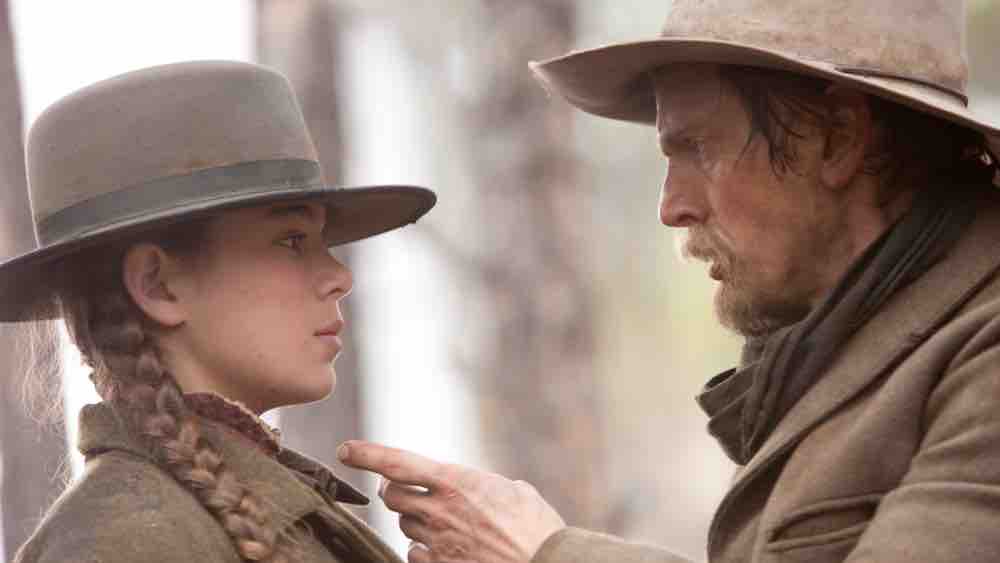
With this classic story, Coen films return to revisionist Westerns after No Country for Old Men (2007). Though True Grit is the title of the 1969 Western starring John Wayne, Coen Brothers’ version of the same film is not a conventional remake. The filmmakers mostly relied on the source novel. However, they use quite a few dialogues from the 1969 film.
Starring Jeff Bridges, Matt Damon, Josh Brolin and newcomer Hailed Steinfeld, the film is set in 1877 and centers around a 14-year old Mattie Ross, who’s determined to avenge the murder of her father. She recruits an elderly, alcoholic marshal named Rooster Cogburn to do the deed. He seeks the aid of a Texas Ranger named LaBeouf. The trio sets off on a journey to catch the drifter. Despite a straightforward plot trajectory, the story withholds a lot of Coen-esque elements and character sensibilities.
Collaborating with Roger Deakins, the Coens turned True Grit into a throwback to classic Hollywood filmmaking. At the same time, they cleverly subvert the Western formula. It takes darker, distinctive turns that unsparingly showcase the true cost of revenge, solidly supported by performances from Jeff Bridges, Matt Damon, and Hailee Steinfeld.
True Grit nabbed a bunch of Oscar nominations including Best Picture. Unfortunately, it failed to win any.
Where to Watch: Apple TV+
7. Raising Arizona (1987)

Nicolas Cage turns in one of his delightfully unhinged performances in this Coen Brothers’ comedy/crime drama. Unlike the usual ample dose of black humor found in the Coens’ movies, here they opt for a much lighter comic style. The plot comes across as vivacious and soulful. In other words, it is uncharacteristically high-spirited compared to the Coens’ later era’s wry comedies. The desires of the characters are perfectly realized in the narrative and allow for audiences to relate with them.
The premise might not be ambitious or profound unlike Coen Brothers’ later works. It largely revolves around a charming yet moronic small-time criminal desiring for a better future. Subsequently, he comes up with a half-baked scheme which is further executed in a messed up manner. Throughout all this, the narrative flow is kept much more grounded and has a lot of heart put into it. In the later half, the Coens’ finely balance madcap fun and a poignant drama. Eventually, Raising Arizona is an enjoyable critique on the so-called ideals of the American family.
Where to Watch: Starz, YouTube
6. Barton Fink (1991)
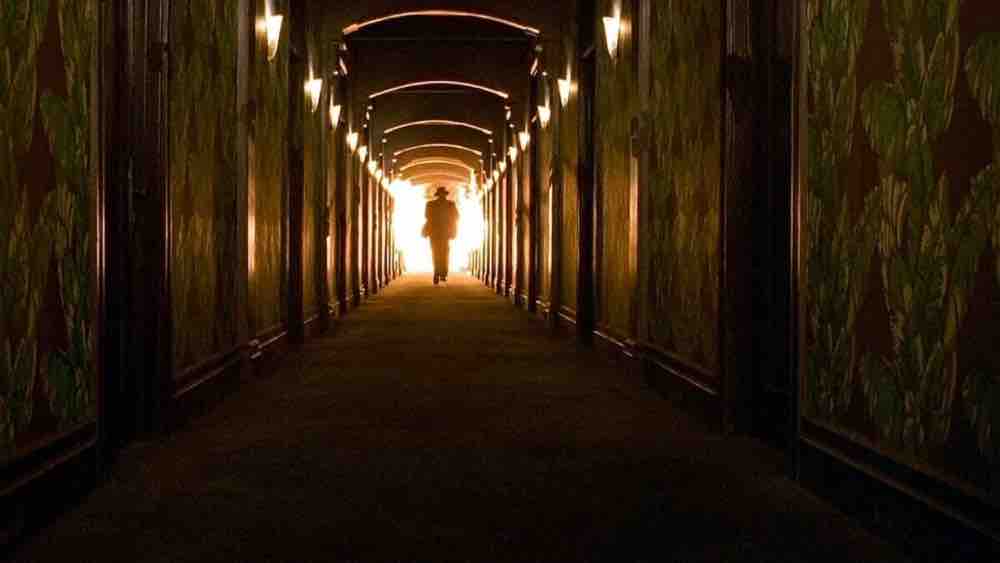
Barton Fink is one of the most interesting films made on the Golden-era Hollywood scene. The Coen Brothers returned to the 50s Hollywood in their underrated drama Hail Caesar! (2016). Barton Fink is the name of the lanky, serious-minded playwright protagonist who has just made it big on Broadway. The time period is the early 1940s, and Barton signs a contract to create stories for Hollywood. He is put up in a dingy Los Angeles hotel. His neighbor is a seemingly good-natured insurance salesman named Charlie.
Barton is given a job to write for a low-budget, wrestling picture, a subject he doesn’t understand. Subsequently, he suffers from writer’s block. This is where Barton’s life starts to spin out of control. The narrative turns fascinatingly surreal, constantly surprising us with its layered writing. A lot of the events that happen in the later-half of Barton’s stay at the hotel remain inexplicable. But it all perfectly comes together as a satire on Hollywood and as a commentary on Faustian deals a writer needs to make to create his story.
Where to Watch: Apple TV+, VUDU
5. Fargo (1996)
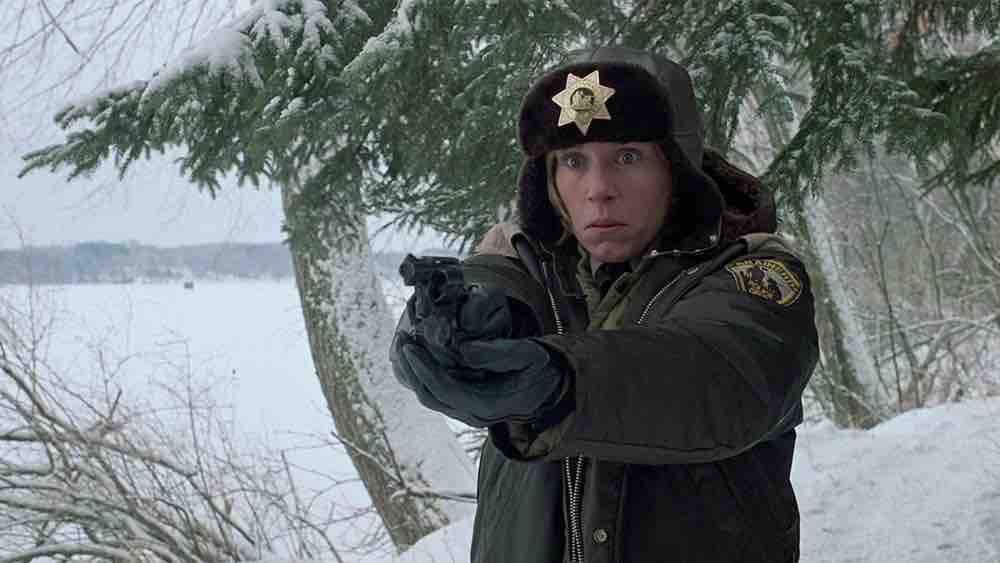
Fargo opens with the most famous disclaimer among movie opening credits. It asserts that what we are going to see is based on a story. Though technically, Coen Brothers’ mesmerizing black comedy plucked two little crime elements from the news stories, almost all of the events portrayed are purely fictional. More than being a clever marketing ploy, Coen Brothers’ starts pulling their satirical punches from this ‘true story’ disclaimer. It interestingly prepares the audience for the array of human absurdities they are going to witness on-screen. A similar disclaimer was used in the Fargo anthology series too.
Set in a small frozen town in Minnesota, it largely revolves around a dissatisfied and nearly bankrupt car salesman named Jerry. He comes up with a crazy plan to kidnap his wife and ask ransom from her rich father. Jerry recruits a couple of goons for his plan. But the kidnappers make a mess of everything, and it all draws the attention of local police chief Marge (Frances McDormand).
Fargo is more about the characters than the plot. Though it has the structure of classic film noir, the movie is an observation of the darker and lighter side of human nature. Furthermore, the Coens’ subtly convey their observations through remarkable dark humor.
The film was nominated for 7 Oscars, including Best Picture, ultimately winning 2 – Best Original Screenplay and Best Actress (Frances McDormand).
Where to Watch: Apple TV+
4. A Serious Man (2009)
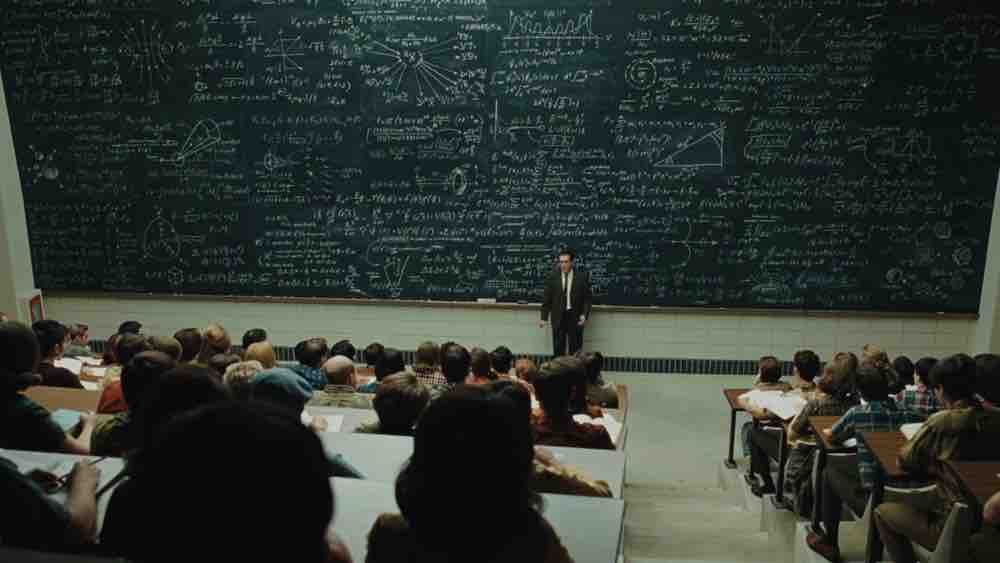
A Serious Man is the most under-appreciated Coen Brothers film. It’s a thought-provoking existentialist fable which is also their most personal work to date. The film is set in their home state of Minneapolis. It’s set in the late 1960s and revolves around a Jewish university teacher and family man named Larry Gopnik (Michael Stuhlbarg). Actually, this is the environment the Coen Brothers’ were born into and raised in.
Larry has come close to achieving the American Dream. He lives in the suburbs with his wife and two children. His teaching position could get permanent soon. Soon, however, a series of inexplicable events threaten Larry’s peaceful existence. Laced with sardonic humor and anchored by pitch-perfect staging, A Serious Man is a nuanced study of the human perception of faith and chance. It pushes us to embrace the mysteries of life rather than lose ourselves in finding the answers. The film is the Coens’ most original work, and also a strong testament to their versatility. Michael Stuhlbarg is splendid in the lead-role, and Larry is perhaps the filmmaking brothers’ most sympathetic character.
Where to Watch: Prime Video, Apple TV+
3. Inside Llewyn Davis (2013)
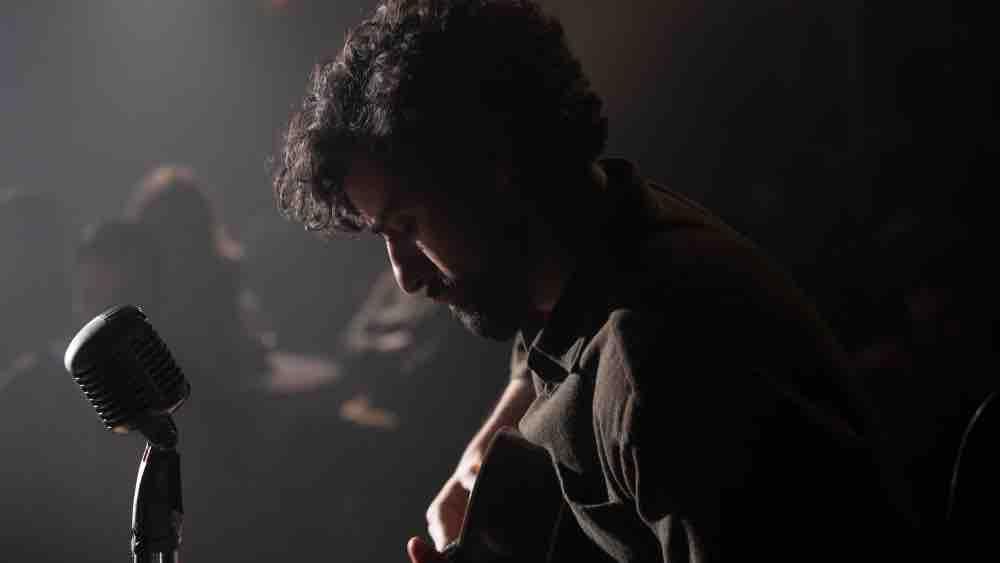
Inside Llewyn Davis is set in the year 1961. It follows folk musician and singer Llewyn Davis (Oscar Isaac) for a week as he navigates through his life’s hardships and challenges. Davis is an uncompromising artist who mourns the death of his musical partner. His solo albums are not selling, and he gets an occasional gig at the Greenwich Village bar. He is moving from couch to couch. To make matters worse, Davis has knocked up his friends’ fiancé.
Inside Llewyn Davis could be perceived as the journey of a self-absorbed, unlikable man who doesn’t show any promise to redeem himself. But that’s only one way of looking at it. The film could rather be seen as the story of a grief-stricken man, who finds it hard to change in the rapidly changing times. His quest to fit in – in this case, the New York folk scene – paints the narrative with a deeply melancholic tone.
Strengthening Coen Brothers’ intimate character study is the lush cinematography of Bruno Delbonnel and the wonderful soundtrack. The grays and blues, in particular, bring us closer to the emotional landscape of Davis. It’s a flawless film about a flawed individual. Oscar Isaac is brilliant as the titular folk singer.
Where to Watch: Showtime
2. The Big Lebowski (1998)
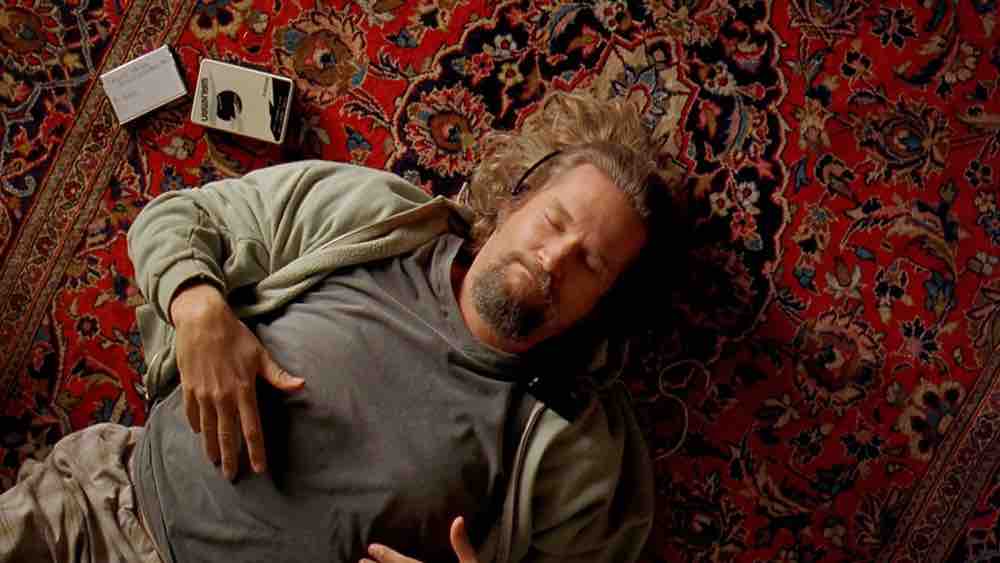
One of Coen Brothers’ intentions in making The Big Lebowski was to pay tribute to the screwball comedies, a genre of comedy that dominated in Hollywood in the 1930s and early 1940s. In these tales, we often see a seemingly innocent man getting drawn into an increasingly messy situation. The Coens’ use a similar set-up to create the most iconic character in the history of cinema, and brilliantly follow the eccentric happenings in his life.
Jeff ‘The Dude’ Lebowski is mistaken for a millionaire with the same last name. The case of mistaken identity gets more convoluted, and subsequent scenarios bring more stress to The Dude. Jeff Bridges as the laid-back anti-hero is phenomenal. He is the perfect opposite of characters like Barton Fink or Larry Gopnik. Wearing surfer shorts and flip flops, The Dude cruises through life in a strangely lovable manner despite the many misfortunes.
What the narrative lacks in originality, it makes up with laugh-out-loud dialogues and excellent performances. The film received a tepid response, both critically and commercially, at the time of its release. But over the years, it has gained a cult status. In fact, the slackerdom of The Dude became a cultural symbol for outsiders or non-conformists.
Where to Watch: Prime Video
1. No Country for Old Men (2007)
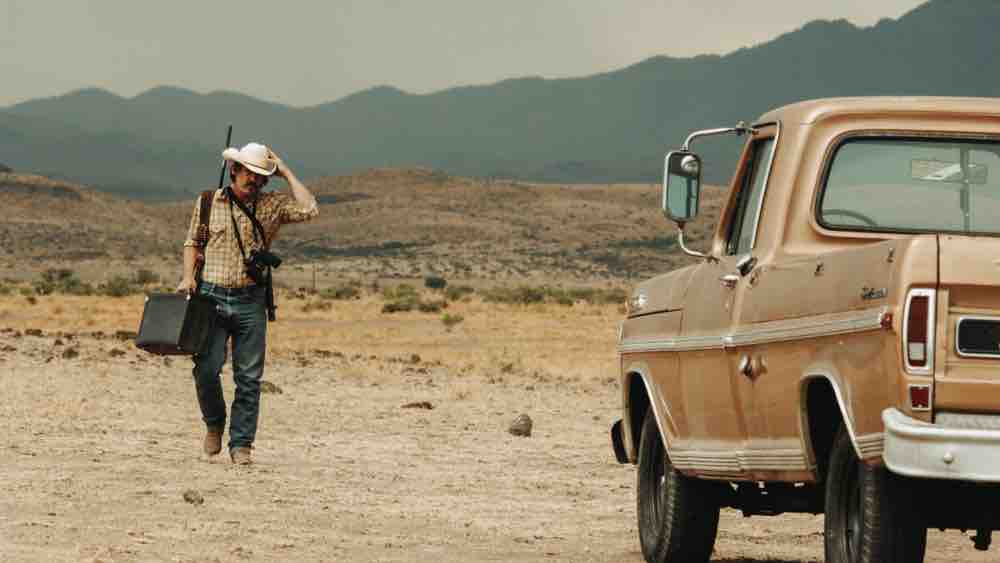
We’re down to the #1 spot and No Country For Old Men is hands down their best film! Based on Cormac McCarthy’s novel and starring Tommy Lee Jones, Javier Bardem, Josh Brolin, the film a meditation on the darker aspects of the human condition. It’s also a grim commentary on the violence and dread that haunts the American nation. The story takes us to a small town in 1980 West Texas that’s situated alongside the Mexican border. An unemployed Vietnam War veteran named Llewelyn Moss, on a weekend hunting trip stumbles upon a bloody massacre. He also finds two million dollars from this failed drug deal.
Moss takes the money home. A psychopathic hitman named Anton Chigurh (Javier Bardem) is hired by the drug lords to track down the money. Meanwhile, a stoic sheriff nearing his retirement tries to make a meaning out of the carnage. He is the film’s moral compass, and like the sheriff, we are stuck in this never-ending cycle of violence and inhumanity.
Coen Brothers’ regular cinematographer Roger Deakins splendidly realizes this gloomy spectacle. No Country for Old Men largely unfolds like a tense chase film. Yet the Coens’ deep characterizations and artful staging transcends the limitations of the sub-genre in order to ask bigger questions. Set in a greedy and amoral landscape, the narrative zeroes-in on the role of violence in human society. The lack of a cathartic resolution brilliantly emphasizes how violence offers no answers. No Country For Old Men nabbed 8 Academy Awards nominations (including Film Editing), winning four including Best Film and rightfully won the Oscar for Best Film that year.
Where to Watch: Apple TV+, Prime Video
Conclusion
There you go! These are the best Coen Brothers movies ranked. Like Robert Altman, Martin Scorsese, and Paul Thomas Anderson, Joel and Ethan Coen are the ‘most American’ filmmakers. Their movies personify the idiosyncrasies and peculiarities of the American social and cultural identity. Even their lesser-appreciated films like O Brother, Where Art Thou? or Warner Bros’ Hudsucker Proxy (starring Tim Robbins, Paul Newman, Sam Raimi, Jennifer Jason Leigh) are brilliantly arranged fictions of 20th century America.
In a way, the Coen Brothers have never really made a bad film. Of course, to appreciate each of their unique works, it’s important to tune into their deeply philosophical wavelength. Furthermore, the beauty of their narratives can often be discovered only in re-viewings.
What are your favorite Coen Brothers’ films? Tell us your top #4 in the comments below.
